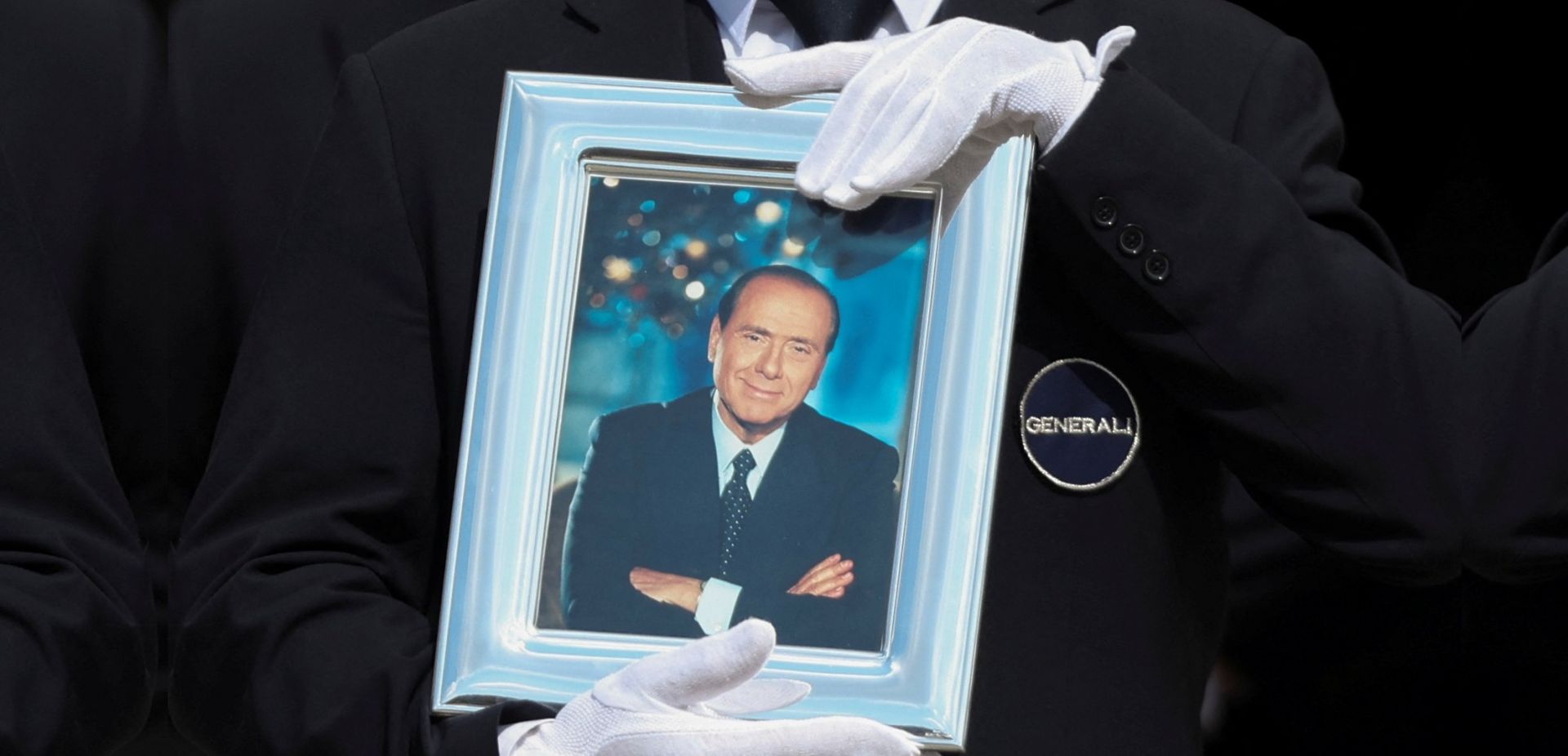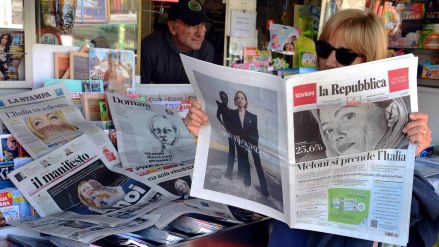Many Italians lived in houses built by Berlusconi, watched Berlusconi’s television programs, read newspapers and books published by Berlusconi, supported Berlusconi’s team, and voted for Berlusconi, while also spending a considerable amount of time living in a country governed by Berlusconi.
The celebrity from Milan realised the American dream in his life. He was a small-town man who came from nowhere but became a billionaire and gained access to the most prestigious circles. One of the many remarks that will be remembered from Berlusconi was his proposal in 2003 in the European Parliament, where he compared the well-known German socialist Martin Schulz to a kapo in a film being made about Nazi concentration camps.
If I were to assign a film role to Berlusconi, I would choose the titular character of
Citizen Kane, directed by (and starring) Orson Welles. It is worth noting that
Kane was also mentioned as one of Donald Trump’s favourite films, who shares many similarities with Berlusconi.
The divine Silvio was a billionaire, a celebrity, a man of media and politics, and he also had his own Xanadu—the famous villa in Arcore. Like Kane, he also died rather dissatisfied—his party had been experiencing declining support in every subsequent election for the past fifteen years, and he himself may have felt increasingly old and irrelevant. Paolo Sorrentino also captured this sentiment well in the film
Loro, dedicated to Berlusconi, where the excellent Toni Servillo, as usual, played the lead role.
The body of the Italian Citizen Kane will be laid to rest in Arcore in a sarcophagus made by one of Italy’s most renowned architects. Berlusconi had already commissioned the preparation of an eccentric mausoleum called the “Celestial Vault” in the style of “Aztec Cubism,” inspired by the tombs of pharaohs and Roman emperors, among others. It does not contain Christian symbols but instead features esoteric and Masonic references.
The honour of resting alongside the
presidente will be granted to only 37 of his closest family and friends—among them, Fedele Confalonieri, his high school friend with whom he played together at weddings and later dealt with billions, creating and toppling governments. Regardless of what one may say about Berlusconi, he was a truly unique individual.
– Kacper Kita
TVP WEEKLY. Editorial team and jornalists
– Translated by jz 





